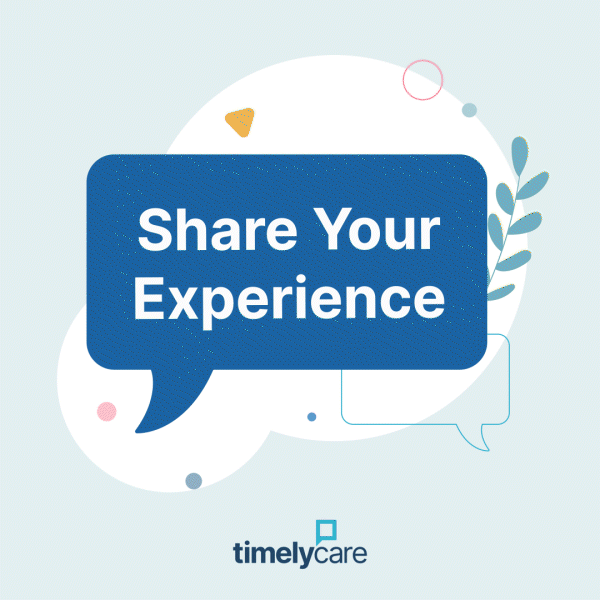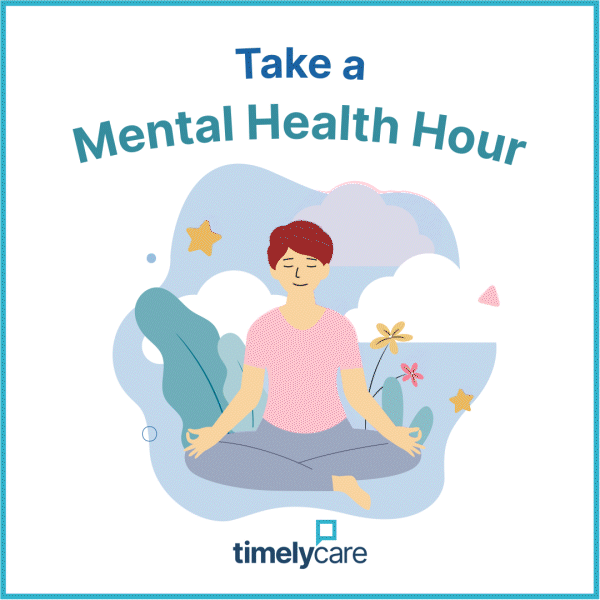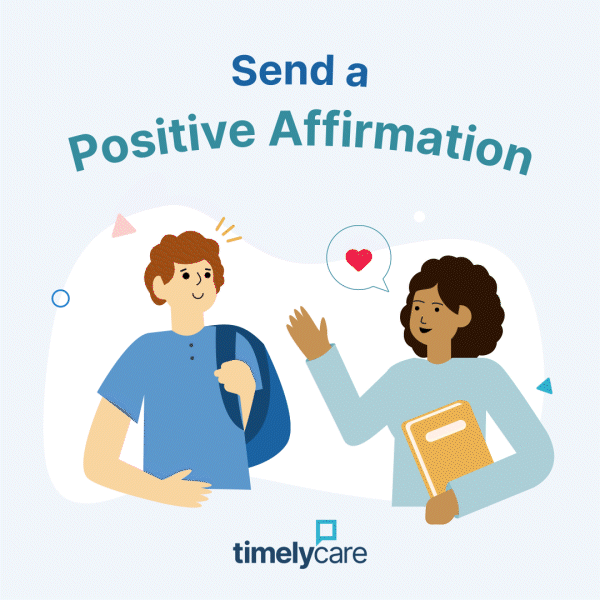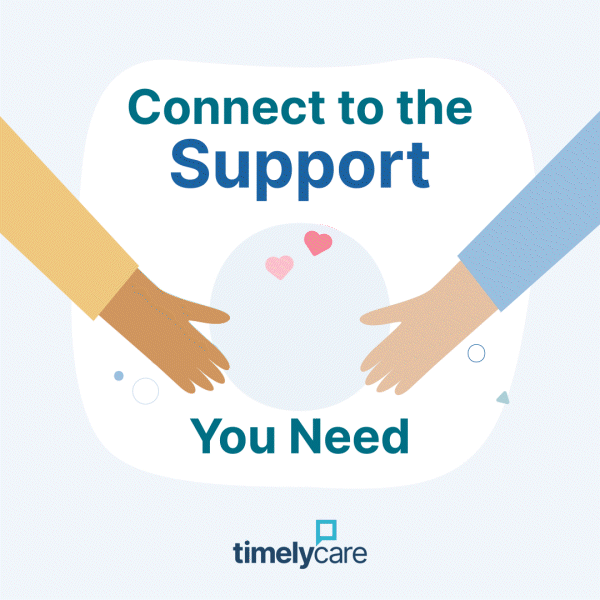Take Action for Mental Health in 2025
May is Mental Health Awareness Month. Use the resources from TimelyCare, The Jed Foundation (JED), Active Minds, Born This Way Foundation, and NAMI to help your campus take action to improve mental health.

5 Ways to Support the Mental Health
of Your Campus Community
TimelyCare has developed five ways that campus leaders can take action to support the mental health of the campus community.
You can use these recommendations to support the health and well-being of students, faculty, and staff during Mental Health Awareness Month and in the lead up to Mental Health Action Day on May 15, 2025.
It can be hard sometimes to take a minute. So, encourage your students, faculty, and staff to find an hour in the day for themselves. Emphasize that “mental health is health” in messaging. Remind your campus community that, just like there are things they do for their physical health, there are things they can do to take care of their mental health too.
Help remove the stigma of seeking mental health care by setting up spaces on campus and/or online for students to share their experiences using mental health resources, such as therapy, peer support, or self-care tools.
Not everyone approaches their mental health in the same way. Share resources across the spectrum of support. From yoga classes and meditation sessions to counseling and psychiatry and everything in between, ensure students understand their options. That includes both physical options like campus counseling and digital resources like TimelyCare.
What key places around your campus or in online portals can you post an encouraging word for your students? Use digital signage, your LMS, or flyers and posters to post them.
“The health and well-being of our students is a top priority for me and our university as a whole. The ability to give our students 24/7 access to the mental health care they need will be a significant supplement to the in-person services available on our campuses. When students have the resources they need to best manage their health, they are better positioned for a successful experience at IU.”
 Pamela Whitten
Pamela Whitten
President
Indiana University
Resources to Promote Action
Use these assets below on your digital and social media channels to help your campus community take action for mental health. Use the hashtags #MentalHealthAwareness and #MentalHealthAction to join the conversation online.
WEBINAR
GenZtressed: Crisis on Campus – A Collaborative Approach to Safeguarding Mental Health and Promoting Student Well-Being
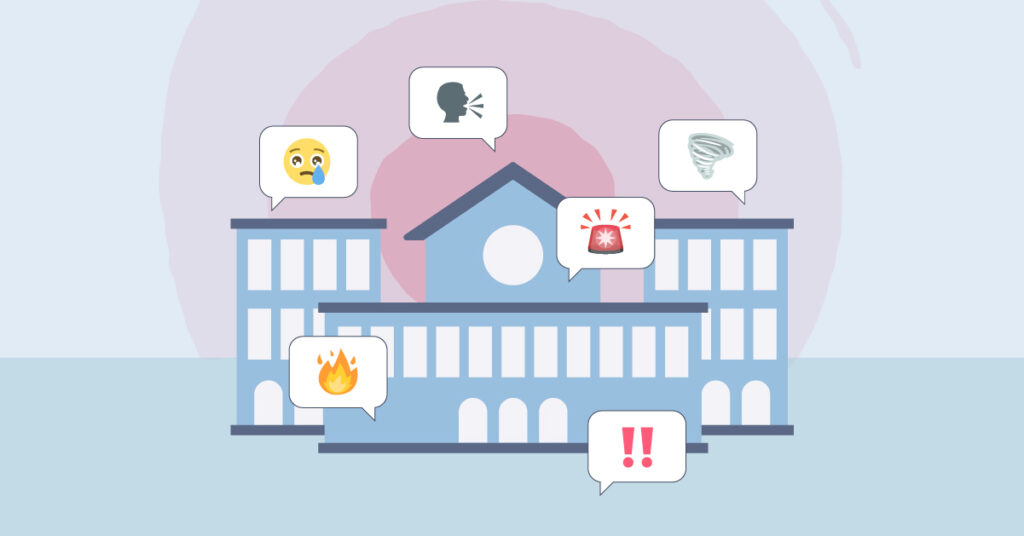
Tuesday, June 3, 2025
Noon PT / 2:00 p.m. CT / 3:00 p.m. ET
When crises arise on campus—from natural disasters to public safety threats or mental health emergencies—how we respond can profoundly impact students’ well-being and the broader campus community. This webinar will explore how cross-department collaboration is essential to managing diverse crises with a mental health-centered approach.
Join the Mental Health Conversation @ TimelyCare

From Struggling to Success: Supporting Non-Traditional Students
Discover how virtual success coaching removes barriers and provides tailored support for non-traditional students. From juggling work and family to overcoming isolation, learn how these tools empower students to succeed on their academic journeys.

Building Stronger Athletes Through Better Mental Health Support
Explore how virtual mental health support empowers student-athletes to tackle stress, stigma, and relentless schedules. Discover strategies for building resilience, achieving balance, enhancing emotional well-being, and unlocking peak performance on and off the field.

Promoting Help-Seeking Behaviors Among Underrepresented Students
Discover how support and virtual tools break down barriers for underrepresented college students. Learn strategies to normalize help-seeking and offering access to resources for student success.
Looking for More Resources on Student Mental Health?
National Mental Health Awareness Month Resources
Active Minds
Active Minds is the nation’s leading nonprofit organization promoting mental health awareness and education for young adults. The organization is dedicated to ending the silence and changing the culture around mental health for everyone. Active Minds offers ways to talk about mental health.
The Jed Foundation (JED)
The Jed Foundation is a nonprofit that protects emotional health and prevents suicide for our nation’s teens and young adults, giving them the skills and support they need to thrive today…and tomorrow. Browse JED’s Mental Health Awareness Month resources to learn how to build resilience within yourself and across your community.
Born This Way Foundation
The Be There Certificate, created by Jack.org in partnership with Born This Way Foundation, is a free, self-paced learning experience designed to increase mental health literacy and provide you with the knowledge, skills, and confidence needed to safely support anyone who may be struggling with their mental health.NAMI
The National Alliance on Mental Illness (NAMI) is the nation’s leading voice on mental health and works in your community to raise awareness and provide support and education that was not previously available to those in need. Visit their website to find resources on this year’s theme: Take the Moment.
Mental Health Outcomes Reveal Impact
At TimelyCare, our mission is to foster student success and improve the health and well-being of campus communities. A key to fulfilling this mission is helping students get better, faster – especially those with severe depression and anxiety symptoms.
TimelyCare users who entered care with severe symptoms on the PHQ-9 or GAD-7 achieved, on average, clinically significant change by their third scheduled counseling or psychiatry visit. Additionally, those who entered care with clinical symptoms on the PHQ-9 or GAD-7, on average, dropped a severity ranking (e.g., moderate to mild) by their third scheduled counseling or psychiatry visit.
What Higher Education Says About TimelyCare










Deliver 24/7 Mental Health Resources
Let’s connect to learn how an integrated virtual solution for mental health can help your campus community thrive.

